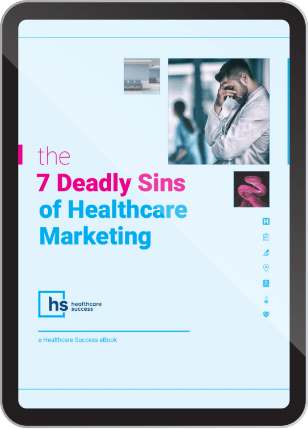Consumers Avoid “Fake News” and Trust Healthcare Advertising
 A fisherman’s first question is always: “Are they biting?” And regardless of the response, the second question is always: “What bait are you using?”
A fisherman’s first question is always: “Are they biting?” And regardless of the response, the second question is always: “What bait are you using?”
It’s easy to see the marketing analogy. First, do your new business fishing where the fish are. And second, know the prospective patients’ healthcare advertising preference. Do they want digital or traditional media? Do consumers have a bias of distrust because of so-called fake news? Do consumers trust radio and/or television for their healthcare marketing messages?
Several polls have recently sampled the attitudes of the prospect public. It turns out that some surveys provide conflicting answers. But healthcare consumers tend to turn away from the counterfeit. Instead, they trust authoritative sources in both the traditional and digital media.
Healthcare advertising preference: sources consumers use and trust...
To be effective in reaching the healthcare-consumer public, what are the best advertising media options for hospitals and providers? The objective, of course, is to use the media of choice and to “fish where the fish are.” So, what are the healthcare advertising preferences among consumers?
One poll, conducted in the Southwest region of the country, reported that 80 percent of consumers preferred broadcast television. What’s more, about 70 percent of consumers prefer direct mail. Not surprisingly, younger demographic respondents—35 and younger—favored social media in the digital category.
A much wider survey by audience research firm Kantar—one not limited to healthcare consumers—reports that the general public in the US tends to trust broadcast radio as a news source. “Consumers cited traditional print, radio and TV news as most credible,” but viewed social media and online news “with more skepticism.” Among American respondents, “print newspapers emerged as most reliable.”
This is where you need a professional media planner…
Media planning and buying is a complex and difficult process. Without a first-class portfolio of media experience, it’s extremely easy to quickly waste precious resources and produce few meaningful results.
What’s best: traditional media, such as broadcast television or radio, or digital advertising online with Pay-per-Click or paid social media? What's the healthcare advertising preference? The bottom line is that, in most circumstances, you will need a well-considered plan with both traditional and digital elements. Using a professional resource, you can:
- Reduce your overall media budget
- Achieve a higher reach and frequency
- Increase efficiency and Return-on-Investment
- Enhance your reputation and brand awareness
- Generate immediate audience response
Advertising—including knowing how to reach your target audience—has a potential risk. The objective is to minimize risk and maximize business opportunity. And, it turns out that a serious advertising commitment is often highly affordable…plus there’s no added cost to use a professional media buyer.
And for more about Television versus Digital advertising, connect here with our recent webinar featuring two industry experts, Charlie DeNatale, Media Buyer, and Raheim Bundle, Digital Marketing Manager.








